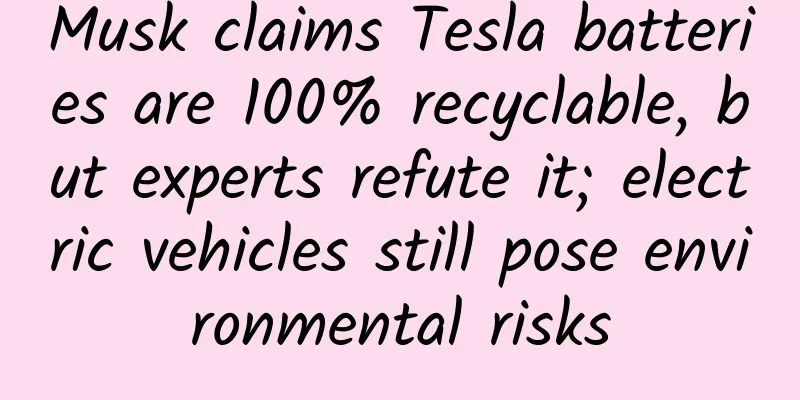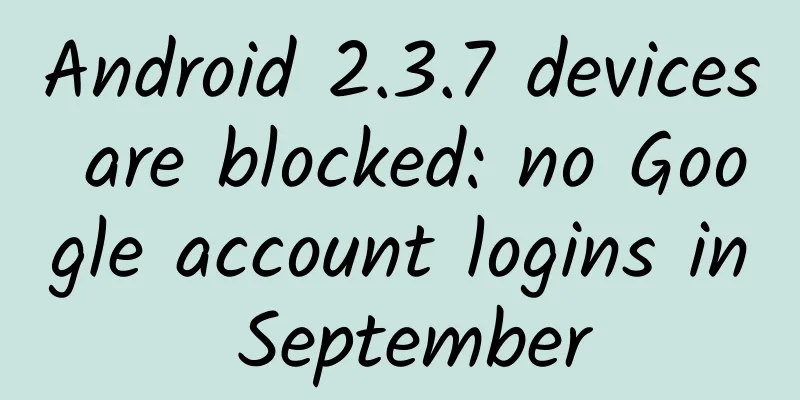Musk claims Tesla batteries are 100% recyclable, but experts refute it; electric vehicles still pose environmental risks

|
Whether electric cars are more environmentally friendly than fuel cars is still a hot topic among many car enthusiasts. One important reason is that the recycling of power batteries is a major challenge to electric car manufacturers and the environment. Tesla has previously released a lithium-ion battery recycling plan, saying that the company can recycle 100% of used lithium-ion batteries. Its ultimate goal is set as "high recycling rate, low cost and low environmental impact", but the plan did not disclose the current progress. Tesla also said that most of the batteries currently recycled under the program come from its own research and development and quality control departments, and the number of batteries from the market is extremely low. Only a few operating vehicles with higher mileage are recycled due to battery degradation. However, the "100% recycling" in Tesla's report seems to mean "100% of used batteries will be recycled in some way", rather than "every battery can be 100% recycled." Kyle Wiens, CEO of iFixit, a professional foreign disassembly organization, said that currently no modern battery can be 100% recycled because there are a large number of non-recyclable materials such as adhesives and sealants. The battery industry has been conducting research and development and innovation, but at present, the recycling of used batteries is still a dual technical and commercial challenge. It is reported that currently, power lithium batteries are mainly divided into two types: lithium iron phosphate and ternary lithium. Heavy metals such as cobalt, nickel, manganese and lithium in them can be recycled and reused, but the high recycling cost makes it difficult to recycle waste batteries effectively. A paper pointed out that currently, recycling 1 ton of lithium iron phosphate batteries requires multiple processes to purify heavy metals, with a cost of up to 8,500 yuan, but the market value of the metals obtained is only 9,000 yuan. At present, the electric vehicle industry is in its infancy. The power batteries of most electric vehicles are still strong in performance, and retired on-board batteries still have some capacity that can be utilized in the energy storage field in a cascade manner. However, in the future, when the electric vehicle industry faces a large number of scrapped on-board batteries, battery recycling will be a major challenge for the industry and the environmental ecology. As a winner of Toutiao's Qingyun Plan and Baijiahao's Bai+ Plan, the 2019 Baidu Digital Author of the Year, the Baijiahao's Most Popular Author in the Technology Field, the 2019 Sogou Technology and Culture Author, and the 2021 Baijiahao Quarterly Influential Creator, he has won many awards, including the 2013 Sohu Best Industry Media Person, the 2015 China New Media Entrepreneurship Competition Beijing Third Place, the 2015 Guangmang Experience Award, the 2015 China New Media Entrepreneurship Competition Finals Third Place, and the 2018 Baidu Dynamic Annual Powerful Celebrity. |
>>: Do you still watch TV? The results of a survey of more than 50,000 people are shocking...
Recommend
Start with these four aspects to become a great CTO
[[151585]] This is an invisible war. The troublem...
Beware! If you see these bugs recently, don’t take photos!
This article was reviewed by Zhang Qikai, Chinese...
Lovely owls? It turns out this mysterious species is not simple!
Owls have fascinated humans for thousands of year...
QQ is testing a "friend expansion" feature similar to the message in a bottle, is it again getting involved in stranger social networking?
[[259529]] Recently, QQ launched a stranger socia...
How much does it cost to develop the Honghe pregnancy and childbirth mini program? What is the quote for developing the Honghe pregnancy and childbirth mini program?
According to industry insiders, mini programs wil...
Multiple earthquakes occurred near Maerkang, Sichuan, with the highest magnitude being 6.0! In the event of an earthquake, how can you save yourself more scientifically?
Early this morning, multiple earthquakes occurred...
“Soul” product operation analysis!
Social needs are the third need based on physiolo...
Tonight, the Geminid meteor shower fills the sky. Where can I watch it? Can I take photos?
Tonight is the day of the annual Geminid meteor s...
An Luqin: MADE Industry Research and Price Index Trend Analysis in January 2022
MADE Industry Research Price Index is published b...
Jia Jia Jia "Introduction to Color Matching for Commercial Illustrations"
With 7 years of illustration experience, we have s...
The soul of the Manhattan Project, the most powerful problem solver of the 20th century [Part 1]
Bethe was a master in the field of physics and as...
How to do a good job of Zhihu marketing for a brand?
Zhihu's commercial marketing system is curren...
New user growth strategy: from traffic to retention
Traffic is the most valuable thing on the Interne...
How much does it cost to customize the Shihezi points mini program? What is the price quote for customizing Shihezi points app?
The factors affecting the quotation of Shihezi po...









